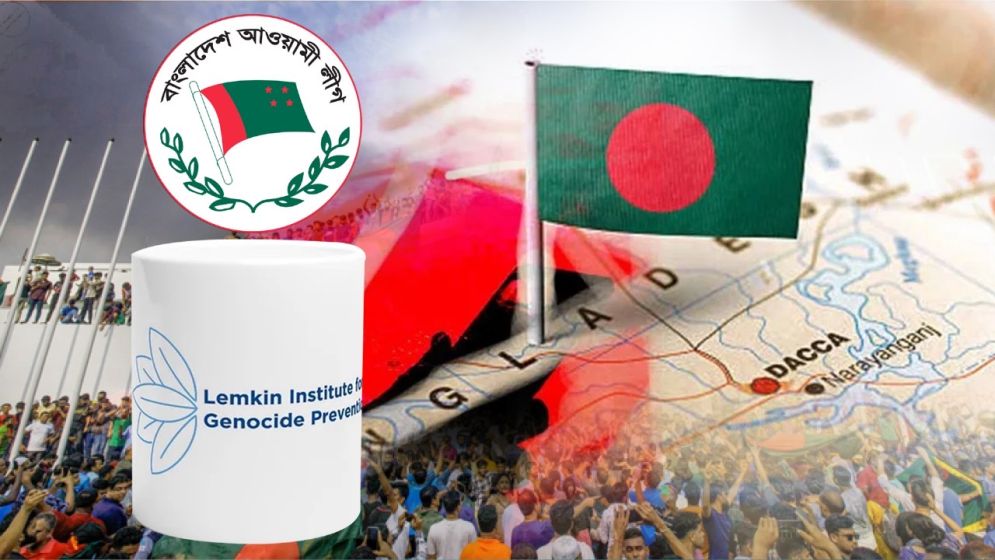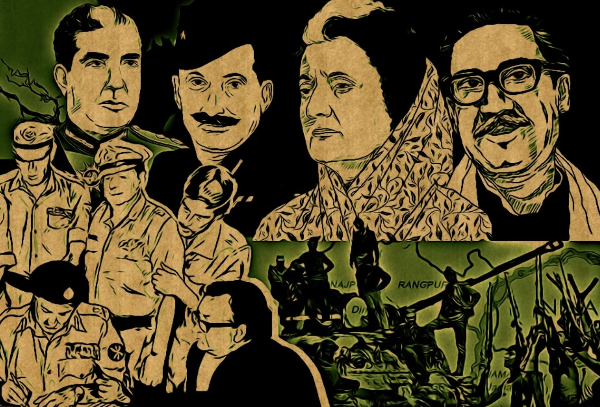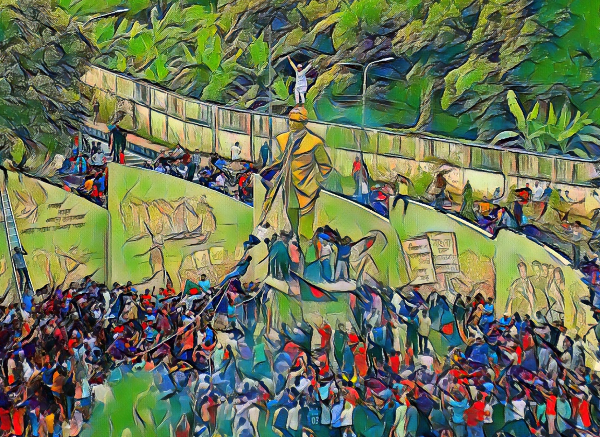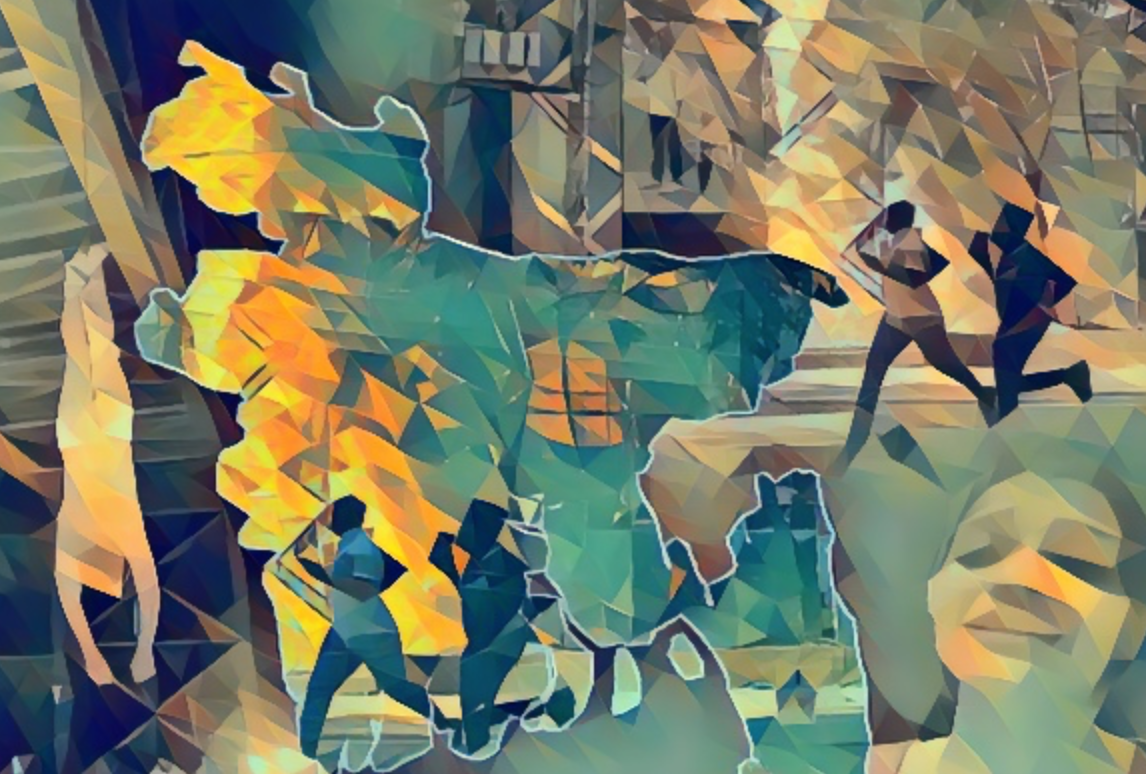Why the Lemkin Institute’s take on Bangladesh’s uprising promotes a twisted pro-Awami League narrative

The recent statement by the Lemkin Institute for Genocide Prevention on "Threats to Democracy in Bangladesh" is a further addition to a growing oeuvre of writing that posits the overthrow of the Awami League government as linked to dangerous Islamic anti-independence forces now in power in the country.
Its statement begins with the claim that "The current political instability in Bangladesh is directly related to the events of the 1971 genocide and its aftermath."
However, framing the overthrow of the Awami League within the context of the politics of 1971—an issue the party has historically used to garner nationalist support—is fundamentally misguided.
Bangladesh's current situation is the result of 15 years of increasing autocracy, the killing of hundreds of protestors between July 16 and August 5, and several political missteps by the Awami League government – and nothing to do with the politics of 1971.
The Lemkin Institute continues its inaccurate “1971” framing by stating that : "If things in Bangladesh continue on the current track the country risks returning to the political configurations that committed, and then denied, the 1971 genocide."

Misleading
analogy drawn with the 1971 war
This analysis is a catastrophic misreading of history. The main perpetrators of war crimes and crimes against humanity during the 1971 conflict were the Pakistani military. The war erupted due to the Pakistani government's efforts to overturn the results of the 1970 elections and to suppress the Bengali struggle for independence.
It is impossible—truly impossible—to suggest that these dynamics could be replicated.
The Lemkin Institute may be trying to hint at the influence of the Jamaat-e-Islami party, which collaborated with the Pakistani military and committed international crimes during the war, suggesting it could rise to power in Bangladesh.
However: (a) the Jamaat-e-Islami is a small political party with little chance of gaining power in the foreseeable future; (b) the party leadership involved in 1971 has all been executed following trials during the Awami League's time in office; (c) the current leadership had no involvement in 1971, and their presence doesn’t absolve the party’s past actions; (d) Jamaat-e-Islami supports an independent Bangladesh; and (e) although it is a conservative Islamic party and some may justifiably be concerned about its influence in Bangladeshi society and politics, it is committed to parliamentary processes.
In addition, of course, the only party responsible for crimes in post-1971 independent Bangladesh that approach those committed during the war is the Awami League government when its law enforcement agencies killed hundreds of its country’s citizens between July 16 and August 5, 2024.
This is why the Lemkin Institute’s claim that Jamaat-e-Islami represents “neo-Razakar elements … akin to neo-Nazis and neo-fascists in the West” is both factually inaccurate and falls on deaf ears in Bangladesh. Yes, the Jamaat were certainly responsible for serious crimes during the 1971 war – and many Bangladeshis will be highly critical of its current conservative islamic politics - but most also now recognise that the party has moved on and, due to events since July 16th, are likely to see the Awami League as the party most properly described as “fascists”.

Turning the
country' history on its head
The Lemkin statement says: "Recent appointees to the interim government positions have signaled that they are attempting to turn the country’s history on its head."
What exactly is this "signaling"? The statement claims: "Targeting the country’s judiciary, and specifically the International Crimes Tribunal (ICTB) that tried perpetrators of the 1971 genocide, this group is arresting judges, prosecutors, human rights workers, journalists, and others involved in the ICTB process, charging them with false accusations of murder and genocide in retaliation for their past participation in a genocidal accountability process."
While the report is correct to criticize the arrests of these individuals, who have been detained based on clearly false charges, it inaccurately links these charges to "their past participation in a genocidal accountability process."
The motivations behind these arrests in fact stem from the accused’s alleged role in supporting and propagandizing for an autocratic government, along with their involvement in a deeply unfair trial process that led to the death penalty for opposition political leaders.
It’s important to remember that these trials were marked by significant unfairness, including a lack of constitutional rights, the inability to call more than a few defense witnesses (if any), the abduction of a defense witness, and biased judges.
International human rights organizations and independent observers unanimously agreed that these trials were profoundly unjust. They were not the straightforward "past accountability processes" the Lemkin Institute implies, but rather highly partisan forms of justice.
These arrests—though unfair and illegal—do not represent "turning the country’s history on its head" or, as the statement claims, "the inversion of Bangladesh’s history." This argument is entirely unfounded.

Interim
government's "Genocidal intent"
The Lemkin Institute statement goes onto state that: "Furthermore, some actions of members of the interim government, as well as mobs aligned with their anti-Liberation War ideology, show ominous signs of genocidal intent towards the Awami League, towards Hindu Bangladeshis, and towards other religious minorities."
The report fails to provide a single example of "actions by members of the interim government" that demonstrate "genocidal intent."
After August 5, following Sheikh Hasina's departure from the country and in the absence of a police force to maintain order, there was notable retaliatory and communal violence.
However, every statement made by any member of the interim government regarding this violence has condemned and criticized these attacks, and they have taken significant steps to prevent further incidents.
To suggest that any of these mob attacks exhibited "ominous signs of genocidal intent" is simply inaccurate, and they provide no evidence to support such a claim.
The Lemkin Institute should be ashamed for contributing to a misleading narrative that supporters of the Awami League have successfully convinced some organizations to adopt.
—-
David Bergman is a journalist based in the UK and Bangladesh. He has long been covering Bangladesh affairs. He can be followed on X @TheDavidBergman

